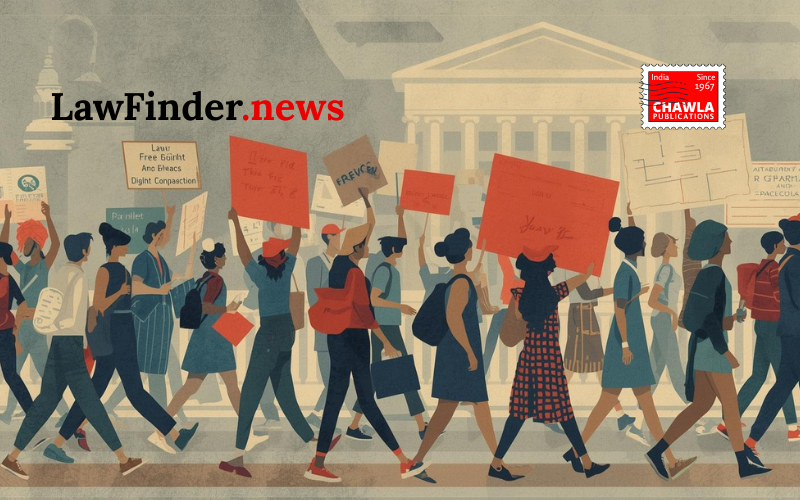Court Affirms Fundamental Rights Amid Allegations of Obstruction, Urges Balance with Fundamental Duties
In a significant ruling, the Madras High Court has reinforced the fundamental right to free movement and peaceful protest under Article 19 of the Indian Constitution while emphasizing the necessity for reasonable restrictions and adherence to fundamental duties. The judgment, delivered by Justice B. Pugalendhi of the Madurai Bench, pertains to the case of P. Ayyakannu, a prominent farmer leader known for organizing demonstrations to promote river water linkage.
The petitioner, Ayyakannu, had approached the court seeking a writ of mandamus to prevent the Union of India and other respondents from interfering with his and his associates' travel plans to New Delhi for peaceful demonstrations. He alleged that despite holding valid train tickets, they were repeatedly deboarded, obstructing their right to protest.
The court acknowledged the obstruction of fundamental rights, noting that the right to free movement and peaceful assembly is central to democratic participation. However, it underscored that these rights are not absolute and must be exercised within the framework of law, obtaining prior permission where necessary.
Justice Pugalendhi highlighted the historical significance of peaceful protests in India, referencing Mahatma Gandhi's deboarding incident that catalyzed a movement for independence. Drawing from the Supreme Court's observations in Anita Thakur v. Government of Jammu and Kashmir, the judgment reiterated the importance of dissent in a democracy.
The court examined the provisions of the Railways Act, 1989, clarifying that railway authorities can deboard passengers only under specific circumstances, such as traveling without a ticket or posing health risks. The judgment asserted that deboarding passengers holding valid tickets merely for intending to protest is impermissible and could lead to legal action against involved officials.
While affirming Ayyakannu's right to protest, the court expressed concern over his methods, citing instances of public nuisance and endangerment. The petitioner was alleged to have used provocative tactics, including climbing structures, using human skulls in protests, and causing disruptions.
The judgment advised Ayyakannu to respect legal conditions for demonstrations and pursue legal recourse if faced with arbitrary obstruction. It reminded authorities to refrain from impeding lawful travel and protest, provided they are conducted with valid permissions.
The decision balances the right to protest with the obligation to maintain public order, offering a framework for lawful demonstrations while protecting individual freedoms. The court disposed of the writ petition with observations, allowing Ayyakannu to initiate legal proceedings if necessary.
This ruling reinforces the delicate balance between fundamental rights and duties in India's democratic landscape, affirming the judiciary's role in safeguarding freedoms while ensuring compliance with the law.
P.Ayyakannu v. Union of India, (Madras)(Madurai Be : Law Finder Doc id # 2780222




